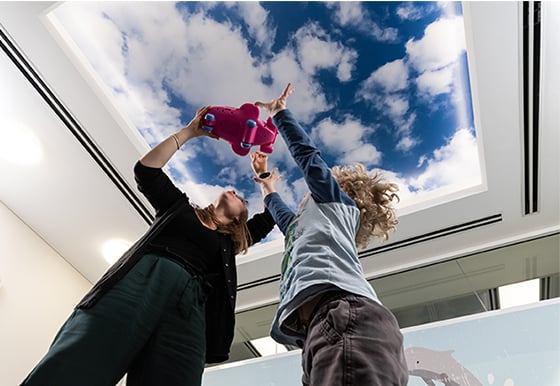Search
Showing results for "1"
Research
Hepatic sinusoidal obstruction syndrome during chemotherapy for childhood medulloblastoma: Report of a case and review of the literatureWe report a patient with high-risk anaplastic medulloblastoma who developed severe HSOS during her second cycle of maintenance chemotherapy.
Research
Rett syndrome: establishing a novel outcome measure for walking activity in an era of clinical trials for rare disordersThis study investigated the capacity of three accelerometer-type devices to measure walking activity in Rett syndrome
Research
Maternal mental health and risk of child protection involvement: Mental health diagnoses associated with increased riskThis WA data linkage study aims to assess whether maternal mental health problems are associated with worse child development outcomes, children’s safety and...
Research
Genome-wide association study of vitamin D levels in children: replication in the Western Australian Pregnancy Cohort (Raine) studyThis genome-wide association study (GWAS) utilises data from the Western Australian Pregnancy Cohort (Raine) Study for 25-hydroxyvitamin D (25(OH)D) levels...
Research
Host genetic factors in American cutaneous leishmaniasis: A critical appraisal of studies conducted in an endemic area of BrazilThis paper reviews American cutaneous leishmaniasis (ACL) immunogenetics in the state of Bahia (BA), northeastern Brazil, highlighting the interacting roles...
Research
Associations between genotype, phenotype and behaviours measured by the Rett syndrome behaviour questionnaire in Rett syndromeRett syndrome (RTT) is a rare neurodevelopmental disorder with developmental impairments, comorbidities, and abnormal behaviours such as hand stereotypies and emotional features. The Rett Syndrome Behaviour Questionnaire (RSBQ) was developed to describe the behavioural and emotional features of RTT.

News & Events
How much is the right amount of therapy?In this blog, CliniKids Director Professor Andrew Whitehouse and Research Development Manager Sarah Pillar explore one of the most common questions when it comes to support for autistic children - how much is the right amount of therapy?
Research
The Impact of Waiting Times on Behavioral Outcomes for Children with Otitis Media: Results from an Urban Ear, Nose, and Throat Telehealth ServiceChildren with otitis media (OM) experience long waiting times to access Australia's public hospitals due to limited capacity. The aim of this article is to utilize an Ear, Nose, and Throat (ENT) telehealth service (the Ear Portal) to examine whether delayed access to specialist care is associated with poorer behavioral outcomes for children with OM.
Research
Boosting the influenza vaccine schedule in children with cancer: a prospective open-label studyCurrent immunization guidelines recommend one dose of influenza vaccine for children aged ≥9 years and two doses for younger or vaccine-naïve children. However, children receiving chemotherapy have an attenuated immune response. We performed a prospective open-label study in children undergoing treatment for cancer at Perth Children's Hospital, Western Australia, to examine the safety and efficacy of a boosted influenza schedule.
Research
Reference genotype and exome data from an Australian Aboriginal population for health-based researchThis data set provides a useful reference point for genomic studies on Aboriginal Australians
